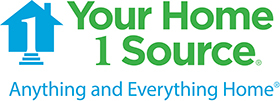
Once a homeowner stops working and retires, they still have plenty of expenses that can create financial stress. Healthcare often tops the list, but maintaining a house can be costly, too. For example, a new roof or minor improvement projects can easily cost $10,000 or more. And, even though many cities and counties provide a homestead exemption for seniors, every homeowner still needs to pay property taxes and maintain insurance.
We’re all aware of the retirement tsunami now underway – approximately 10,000 Americans turn 62 every day. And many older Americans, especially those needing more cash to pay bills, may be seeking to turn this home equity into cash via a reverse mortgage.
But anyone considering a reverse mortgage needs to understand the benefits, the potential pitfalls and the financial responsibilities before signing on the dotted line.
What is a reverse mortgage?
A reverse mortgage allows homeowners age 62 and older to borrow from their home’s equity without having to make monthly mortgage payments. The most popular type of reverse mortgage is the Home Equity Conversion Mortgage (HECM), which is insured by the federal government and only offered by FHA-approved lenders.
What are the Benefits? The Downside?
These funds can be used to pay for living expenses, healthcare, debt and anything else. There are no monthly payments toward the loan balance. And, a spouse that is not a borrower and not listed on the mortgage can remain in the home after the borrower dies.
On the other hand, there is a cost. First, the homeowner is borrowing money against the equity in the home, which means it’s possible there will be none left for any heirs once you pass away. The other potential problem is the fees for these loans, which can be high.
Who Is Eligible for a Reverse Mortgage?
To be eligible, a homeowner must be 62 years old, must own and live in the home. If you don’t already own the home outright, any existing mortgage you have must be paid off using the proceeds from your reverse mortgage.
Responsibilities After Obtaining a Reverse Mortgage
Once a homeowner receives the loan, they continue to have several responsibilities. Every homeowner must remain current on property taxes, homeowner’s insurance and other mandatory obligations such as homeowner’s association dues. The property must be maintained and kept in good condition.
How It Works
There are some options for how to receive your money. With a HECM fixed interest rate, you will receive a single disbursement lump sum payment. A person choosing a variable rate can choose from the following:
- Equal monthly payments;
- A line of credit;
- A combination of a line of credit plus fixed monthly payments.
The borrowed money doesn’t need to be repaid until the borrower passes away. The homeowner will never owe more than the home is worth regardless of how much they borrow or what happens to their property values over time. And if the balance is less than your home’s value at the time of repayment, you or your heirs keep the difference.
What’s the Cost?
The cost of a reverse mortgage is not insignificant. Most HECM mortgages allow a homeowner to finance closing costs into the new loan, which means a homeowner won’t need cash to pay these expenses. Here’s a breakdown of HECM fees and charges, according to HUD:
- Mortgage Insurance Premium (MIP). A 2 percent initial MIP at closing, as well as an annual MIP equal to 0.5 percent of the outstanding loan balance. MIP can be financed into the loan.
- Origination fee. Lenders charge the greater of $2,500 or 2 percent of the first $200,000 of your home’s value to process your HECM loan, plus 1 percent of the amount over $200,000. The FHA caps HECM origination fees at $6,000.
- Servicing fee. Lenders can charge a monthly fee to maintain and monitor your HECM for the life of the loan. Monthly servicing fees cannot exceed $30 for loans with a fixed rate or an annually adjusting rate, or $35 if the interest rate adjusts monthly.
- Third-party charges. Third parties charge their own fees for closing costs, such as the appraisal, title search and insurance, inspections, recording fees and mortgage taxes.
Who Can Help Me if a Reverse Mortgage is Right for Me?
Before signing up for a reverse mortgage, HUD requires that all homeowners meet with a counselor that works with a HUD-approved housing counseling agency. At the end of the session, they will issue you a certificate that each homeowner provides to their lender.
The counseling session is free and the counselor has no interest in whether you decide to get the loan. Their goal is to ensure that a homeowner has the right information to decide if this loan is right for you. The counselor will discuss:
- The costs and tax implications of entering into a reverse mortgage;
- The different ways a person can receive funds;
- Other options available to the prospective borrower, such as a home equity loan.
Maybe more important, the counseling session provides a homeowner an opportunity to ask questions of a trained professional who has no financial interest in whether or not you choose to pursue a reverse mortgage. They will help you understand the cost and whether it makes sense to move forward.
Mark Cole is Chief Executive Officer of HLP, a nonprofit mortgage technology company based in Baltimore. HLP’s web portal is a one-stop technology solution to help homeowners nationwide ensure that critical documents from distressed homeowners reach mortgage companies. To find out more about HLP’s services, visit www.hlp.org.
